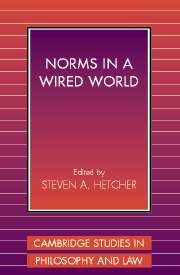Book contents
5 - Critical Moral Norms
Published online by Cambridge University Press: 05 June 2012
Summary
Without such a convention, no one wou'd ever have dream'd, that there was such a virtue as justice, or have been induc'd to conform his actions to it. Taking any single act, my justice may be pernicious in every respect; and 'tis only upon the supposition, that others are to imitate my example, that I can be induc'd to embrace that virtue.
David HumeIntroduction
Varieties of moral acts fall into two main types: outcome-oriented moral acts and action-oriented moral acts. Outcome-oriented moral norms are constituted by outcome-oriented acts, and action-oriented norms are constituted by actionoriented moral acts. An outcome-oriented act is one that is taken to be right insofar as it is the best means to some desired consequences. An action-oriented act is taken to be right for some reason other than, or in conjunction with, its role in the production of desired consequences. Both deontological and virtuetheoretic behavior may be considered action-oriented. Outcome-oriented norms will be examined in Section I, and action-oriented noms will be examined in Section II.
Prima facie, it is puzzling how action-oriented moral behavior might lead to norms. Kantian reasoning is the paradigm of action-oriented behavior. The notion of conformity necessary for norms seems alien to Kantian thought. For the Kantian, when duty calls for one to act in some particular manner, the fact that others are not acting in this manner does not negate one's duty. Nor does the simple fact that others are acting in some particular manner provide one with reason to act in the same manner.
- Type
- Chapter
- Information
- Norms in a Wired World , pp. 120 - 146Publisher: Cambridge University PressPrint publication year: 2004

